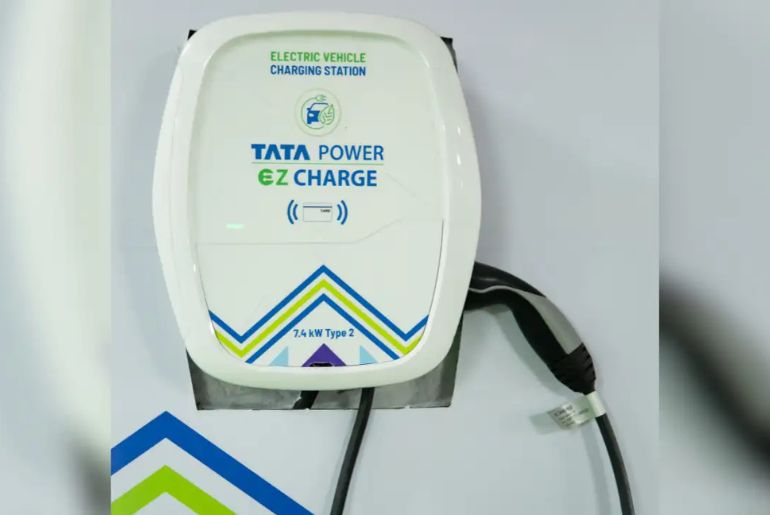Due to the poor utilisation rate of its current assets, Tata Power, a significant player in India’s EV charging infrastructure, has put a halt to its ambitions to expand its network of public charging stations.
In August 2023, the business declared that by FY28, it would have at least 25,000 EV public charging stations. Tata Power operates at least 5,500 public charging stations, yet less than 5% of them are in use.
According to Praveer Sinha, CEO of Tata Power, the business has established a strong EV charging network from Srinagar to Bengaluru and can quickly expand as needed.
“The only issue is that electric vehicle adoption has not occurred to the degree we anticipated. We can accommodate it if the number of electric vehicles on the road rises tomorrow. The foundation has been laid. With 5,500 public chargers, 1.2 lakh home chargers, and 1,200 bus chargers, we remain the largest participant in the EV charging market,” Sinha stated.
The action taken by Tata Power may be a sign of a general slowdown in India’s public EV charging unit installation rate. The government of Karnataka, which has the best EV infrastructure in India, had to abandon its ambitious plan last month to install 2,500 EV charging stations throughout the state due to the lack of reaction from private enterprises.
Since our current utilisation rate is less than 5%, Sinha stated, “I do anticipate that as EV penetration increases, you will see more and more of our chargers being used.”
In a report published on August 4, the Niti Ayog said that India has only made headway towards having 7.6 percent of its total car sales in 2024 be electric, “far behind” its goal of 30 percent by 2030. According to the Union government’s policy think tank, India needs to raise its share by more than 22% in the next five years alone, since it has taken almost ten years to reach the penetration level of 7.6%.
“India is doing well with electric two-wheelers and electric three-wheelers. With regard to electric buses, it has made some progress, but with electric cars, it has been slow,” read the Niti Ayog report.
With an investment of Rs 2,000 crore till the end of FY26, the government hopes to deploy 72,000 EV public chargers under the PM E-Drive programme. The government will strategically position these stations along 50 national highway routes and in busy locations such as metro areas, toll plazas, train stations, airports, petrol stations, and state highways.
There are 29,277 EV charging stations in India right now. With 6,097 EV charging stations, Karnataka is in first place, followed by Maharashtra (4,155) and Uttar Pradesh (2,326).

